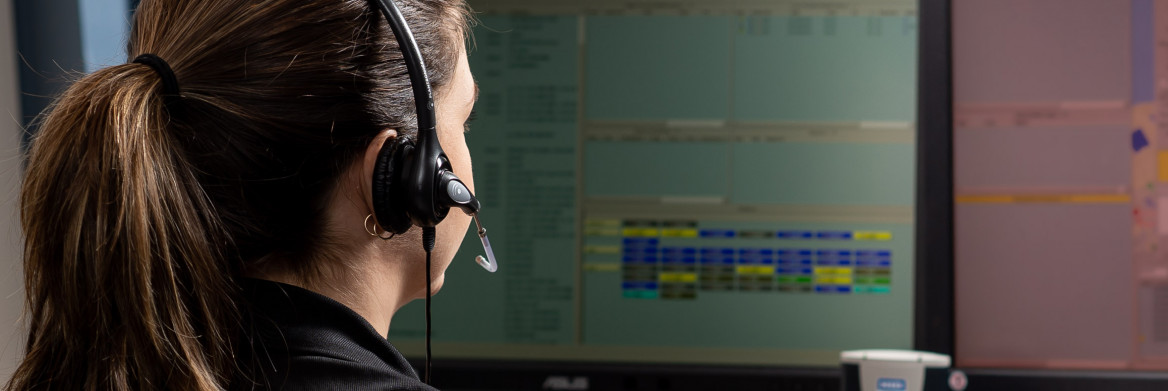When you call the police, there's a good chance you'll speak to a telecommunications operator. These specially trained operators play a vital role in public safety by answering calls and dispatching police officers. Travis Poland spoke to Rhonda Kawaleski, who has worked as a telecommunications operator for 18 years, about what the job is like.
What does a telecommunications operator do?
Telecommunications operators answer most police-related calls. We take the call, whether through 911 or rerouted from a detachment, and determine its priority and the situation's severity, before sending the information to an officer so they know what's happening and where to go.
How do you work with police officers?
We're the contact point between the public and police officers, 24-7. We get the call and dispatch it to officers. We talk to officers a lot providing them with information like record checks on people and vehicles. This lets officers know what the situation may be like and helps keep them safe. During a call, we ask questions that help police when they arrive on scene. We try to find where a situation is occurring, what's happening, when it happened, who's involved and if weapons are present. We ask if drugs or alcohol are involved because these things can escalate a situation.
What are the qualities of a good telecommunications operator?
You have to be patient, understanding and a good communicator. It's important to be empathetic, but you have to process information quickly to get people help as soon as possible. Multi-tasking is important, too. Operators use several pieces of equipment simultaneously such as computer software, telephones and radios. We're always open so there is some shift work involved and operators must be flexible.
What type of training do telecommunications operators receive?
Since 2014, every telecommunications operator with the RCMP takes a six-week training course. There's two main focuses: call taking and dispatching. Call taking looks at information gathering and what questions to ask, especially when someone is going through a traumatic situation. Dispatching looks at taking information from the calls and sending it to officers. There's theory lessons and practical training to make sure people are comfortable before starting the job.
What kind of calls do telecommunications operators receive?
Calls come in about everything and anything; it can be unpredictable. Some may have nothing to do with police, like flooded basements. Others can include vehicle accidents and 911 misdials to missing persons and noisy neighbours. Nobody calls us when they're having a good day. They can be upset, frustrated or scared. We must handle every call with understanding and ensure the information we're getting is correct so police can respond appropriately.
What are some of the challenges and rewards of the job?
I really like the problem solving and not knowing what can happen any given day. Sometimes a Tuesday night can be busier than a Saturday night. The technology is always evolving so you have to keep up with software updates, radio changes and any policy changes. It's important to establish work-life balance. You hear emotional things every day and bringing that home can weigh heavily. It can be a challenging job, but it's amazing knowing you're helping people when they need it most. I've had opportunities to support operations at major events such as the 2010 Winter Olympics and G7 and G8 summits.
What led you to a telecommunications operator career?
My dad was an RCMP officer and when I graduated university, he told me the RCMP was hiring operators. I toured the communications centre and thought it was a fascinating opportunity to make a difference and contribute to the bigger picture. I went through the interview and hiring process and when I got in the hot seat, I never left. You're the first person to answer a call that in five minutes or less, can make a difference in someone's life.
